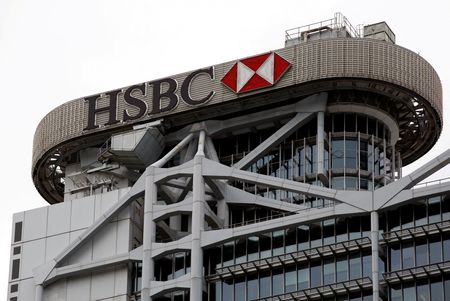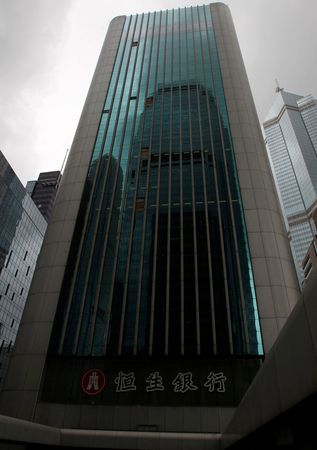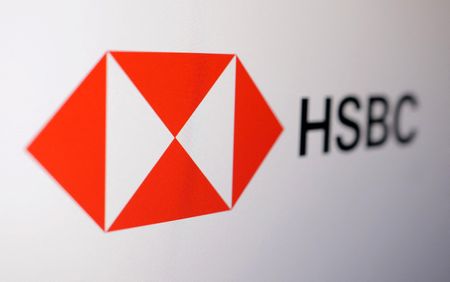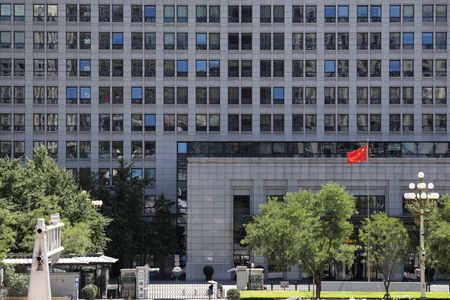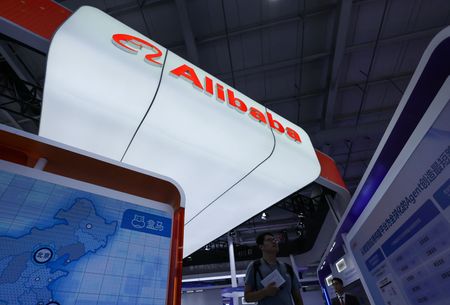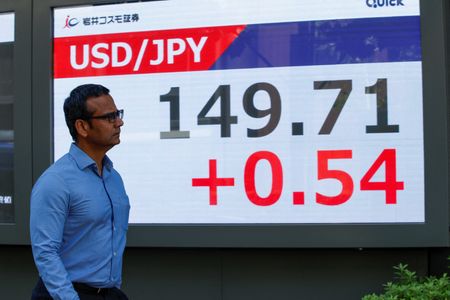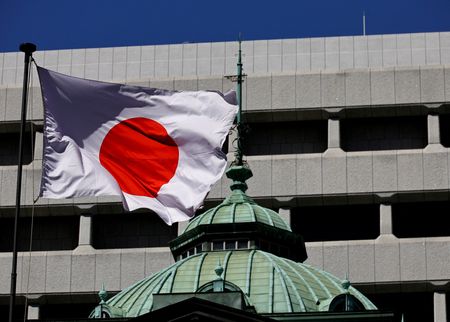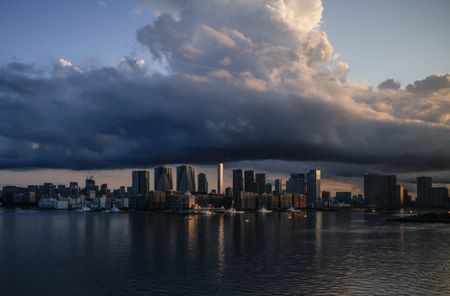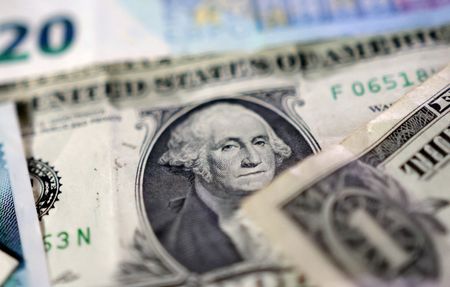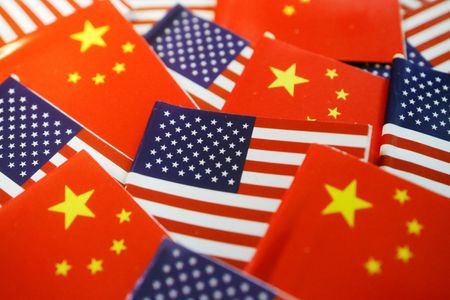By Scott Murdoch and Selena Li
HONG KONG (Reuters) -HSBC said on Thursday it planned to privatise Hong Kong’s Hang Seng Bank after its majority-held subsidiary has come under fire for its performance and exposure to faltering property markets in the city and mainland China.
HSBC will offer HK$155 per share, valuing the deal at about HK$106.1 billion ($13.63 billion) for the purchase of the 36.5% of shares not already owned by HSBC and giving Hang Seng Bank a total valuation of $37 billion.
Hang Seng Bank shares touched as high in early trading as HK$168 before retreating to HK$150.1, up 26.13% but below the offer price.
HSBC’s Hong Kong-listed stock fell 6.51% to HK$103.4, a far worse performance than the 0.15% decline in the benchmark Hang Seng Index.
HSBC said the offer was made at a 30.3% premium to Hang Seng Bank’s closing price of HK$119 on Wednesday and it was in line with its strategy to increase leadership and market share in areas where it had clear competitive advantages and growth opportunities.
“This is an investment for the medium- to long-term in what is a leading local bank in Hong Kong, an iconic franchise, distinct and unique customer proposition and a strong financial standing with very good liquidity ratios and capital ratios,” HSBC CEO Georges Elhedery told reporters on Thursday.
Elhedery said that the bank would pause HSBC’s share buybacks for about three quarters to build up the capital required for the acquisition.
The offer, which will maintain Hang Seng Bank’s separate brand, also represented a significant investment into Hong Kong’s economy, underscoring HSBC’s confidence in the market and its future as a leading global financial centre, the CEO said in a separate statement.
The Hong Kong Monetary Authority (HKMA) said it had been in talks with the banks on the proposal and would maintain dialogue during the process.
“We take note of HSBC Holdings’ stated rationale for the transaction being investing significantly into Hong Kong,” it said in a statement, adding the two banks would continue to operate as separate institutions.
Michael Makdad, senior equity analyst at Morningstar, said the move was “positive and long-overdue” as parent-subsidiary double listings were inherently problematic in terms of governance.
“HSBC will need to pay a premium…but there should be some opportunities for cost synergies,” he added.
RISING BAD LOANS
The privatisation move comes as Hong Kong’s debt-laden property developers and their creditors are set to face intensifying financial pressure as bond maturities are slated to jump by nearly 70% next year.
Hang Seng Bank has reported rising bad loans over the last few years due to its relatively high exposure to the Hong Kong and mainland Chinese property markets.
Impaired loans reached 6.7% of its gross loans as of June 2025, up sharply from 2.8% at the end of 2023.
Reuters last year reported that due to worries about a potential rise in bad loans amid growing economic headwinds and the property sector crisis in China, HSBC in early 2024 started planning to tighten risk management at Hang Seng Bank.
When asked if the move to privatise Hang Seng Bank was a bailout considering its worsening loan book, Elhedery said that was “absolutely not the case” and added both banks had communicated about Hang Seng Bank’s commercial real estate exposure.
“We remain constructive on the outcome for the sector in the medium to long term. So we see this as a short term credit cycle, which in part is normalising,” he said.
HSBC said the Hang Seng Bank privatisation would have a negative impact of about 125 basis points on its common equity tier 1 (CET1) ratio, which stood at 14.6% at end-June.
It said the bank expected to restore its CET1 ratio to its target operating range of 14.0% to 14.5% through organic capital generation and by pausing share buybacks.
The offer price is final, HSBC said, adding that it does not reserve the right to revise it.
($1 = 7.7815 Hong Kong dollars)
(Reporting by Selena Li in Hong Kong and Scott Murdoch in Sydney; Additional reporting by Donny Kwok in Hong Kong and Adwitiya Srivastava; Editing by Jamie Freed)

